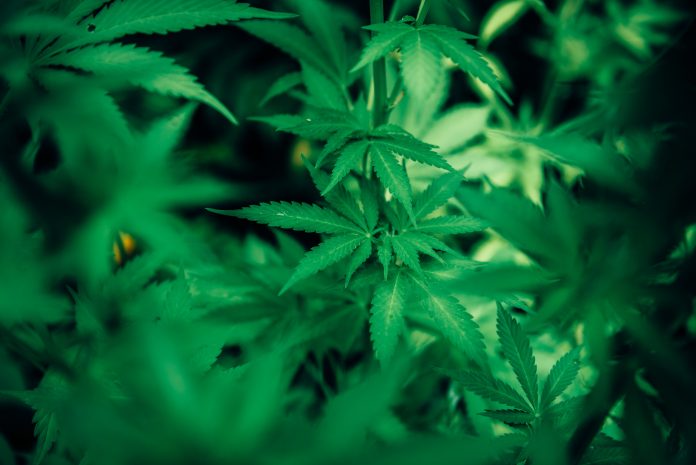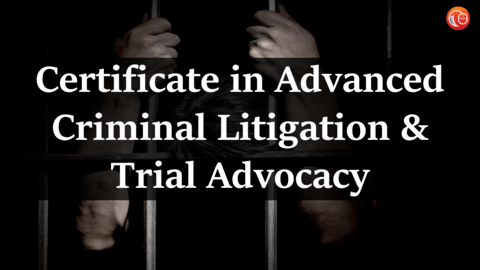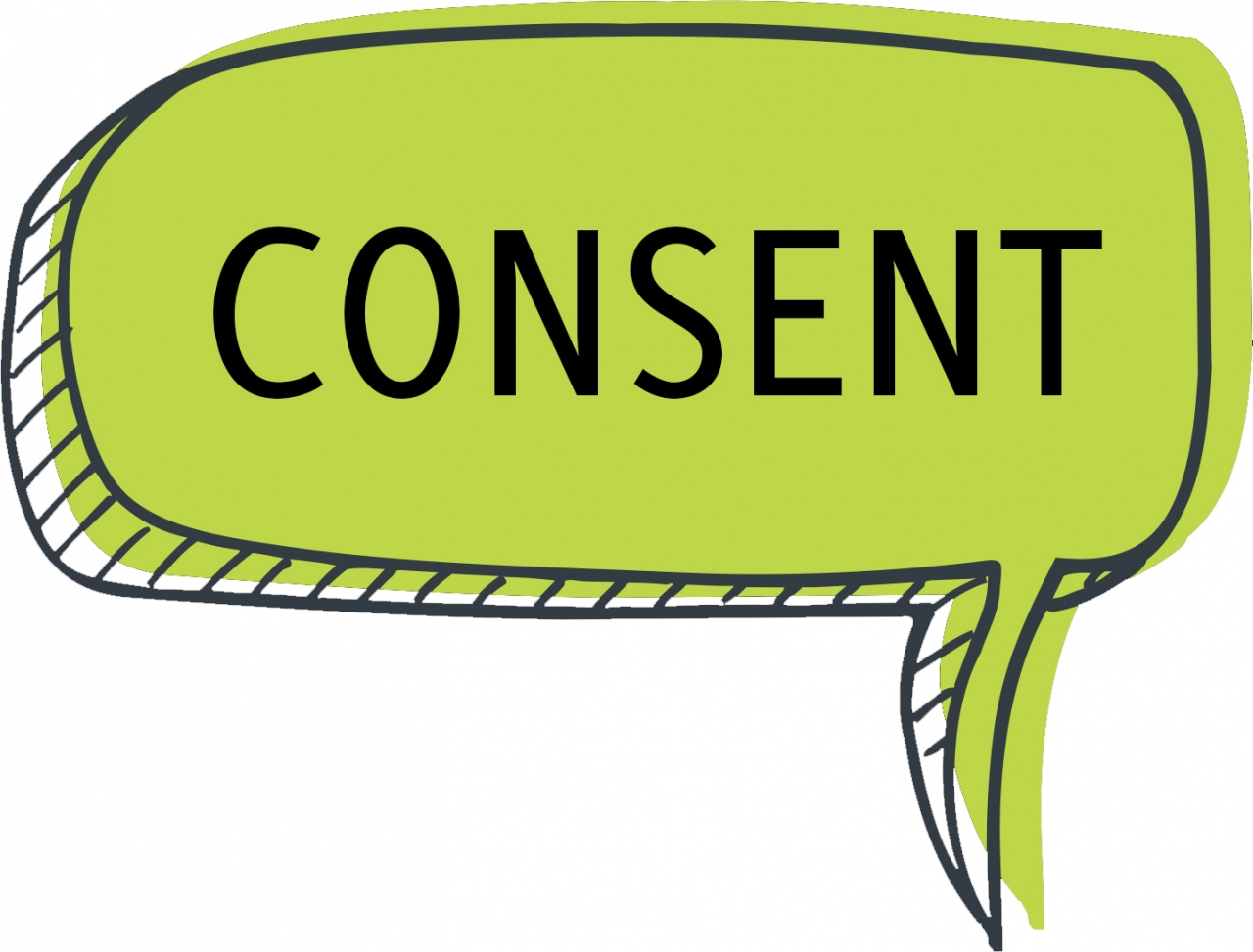This article is written by Gursimran Kaur Bakshi, a student at the National University of Study and Research in Law, Ranchi. The United States enacted its wide-ranging Agriculture Improvement Act of 2018 which has legalised hemp crops for industrial purposes. This has implicitly legalised the manufacturing and selling of Delta-8 THC which contains minor psychoactive substances similar to the legally banned Delta-9 (Marijuana). The latter contains major psychoactive constituents. This article explores how the indirect legalisation of Delta-8 would potentially impact the US Market.
Table of Contents
Introduction
‘To legalise or not to legalise Marijuana’ is metaphorically the same as ‘to be or not to be’ in many ways. Historically, emperors, rulers, and now modern-day states have all debated over the legalisation of marijuana, at some point in time, because it has existed since time immemorial. The existence of marijuana is as old as 28 million years and was found to have evolved from the eastern Tibetan plateau.
The current-day debate on its consumption and usage calls for the analysis of various factors because, on one hand, the legalisation could significantly impact the economy of a state by way of generating revenue and on the other hand, it may result in illegal sales of the drug if not regulated properly.
The recent agricultural law passed in the United States has legalised hemp crops for industrial purposes. It has also legalised derivatives of the hemp plant and one of its derivatives happens to be Delta-8 THC. Delta-8 THC is chemically produced from the hemp plant and in doing so, traces of Delta-9 also known as marijuana (legally banned) is also created.
With the new law, the sales of Delta-8 are soaring. Because who would not want to enjoy the sister version of marijuana that too at a lesser cost? That’s what the loophole in the present law has resulted in. It has become problematic for the regulatory authorities who were not ready to face the explosive demand of Delta-8 THC in the US market.
This article deals with the 2018 US agricultural law that has legalised hemp and its derivatives for industrial purposes. In explaining the nuances of the law, certain terms have also been explained for the convenience of the readers.
Further, how the law regulates the manufacturing and production of hemp crops including their derivations have also been explained to analyse whether the loophole in the law should be entertained or not.
The new agricultural law and the previous laws that it replaced
The US Agriculture Improvement Act, 2018
The US recently legalised the industrial production of hemp crops under the wide-ranging legislation (Agriculture Improvement Act of 2018) [The 2018 Farm Bills]. The 2018 farm bills are set to expire in 2023. The 2018 law is unlike the rest of the laws that have been enacted previously.
The 2018 law has legalised hemp and its derivations under Section 10113, which was long prohibited under the broader legislation that mainly prohibited marijuana, as both are a byproduct of the Cannabis plant. This means that the manufacturing, production, and distribution of hemp crops and their derivatives can now be sold legally in the US market.
Further, Section 7605 has made the research on hemp and the conditions under which the research can be conducted on it permissible.
Previous acts regulating controlled substance
The consumption of Delta-9 was absolutely illegal in the US under the Marijuana Tax Act, 1937 and the Controlled Substance Act, 1970 (‘CSA’). As there was no difference recognised between hemp and marijuana under these laws, the former was added to Schedule I of the CSA 1970 which prohibited its production. This has been amended. Now, Section 12619 of the farm bills specifically legalises hemp-derived products by removing them from Schedule I of CSA.
The historic decriminalisation of cannabis for research purposes
Cannabis is recognised as a psychoactive substance under the 1961 Single Convention on Narcotic Drugs, the 1971 Convention on Psychotropic Substances, and the 1988 Convention against Illicit Traffic in Narcotic Drugs and Psychotropic Substances and hence, prohibited. However, its prohibition has not been effective and has rather encouraged illicit sales of it.
In the US itself, the prohibition according to the American Civil Liberties Union has incurred taxpayers money of approximately $3.6 billion a year and has also resulted in the arbitrary arrest of 6, 00, 000 people because its consumption has been associated with people of colour. Black people in the US are four times more likely to be arrested for the possession of cannabis than white people.
World Health Organisation’s recommendation to decriminalise cannabis
However, the World Health Organisation(‘WHO’) has continuously recommended removing cannabis as an illicit drug because of its known and effective therapeutic properties. Recently, in 2020, WHO’s recommendation has been taken up by the UN Commission on Narcotic Drugs which have now decided to remove cannabis from Schedule IV of the 1961 Single Convention on Narcotic Drugs.
Under the Convention, Article 1(1)(b) defines cannabis as “the flowering or fruiting tops of the cannabis plant (excluding the seeds and leaves when not accompanied by the tops) from which the resin has not been extracted, by whatever name they may be designated.”
The Convention contains four Schedules. Schedule I contains the controlled substance on which the measures of control are strictly applicable. Whereas, under Schedule IV, parties can adopt special measures to prohibit its use, manufacture, import and export to name a few based on their public health needs. These measures can be taken except in cases where it is used for research and scientific purposes.
The US voted in for the recommendation and decided to remove cannabis under Schedule IV of the Convention to stimulate global research on the same. However, it retained the prohibition on cannabis in its generality under Schedule I. It also passed the Marijuana Opportunity Reinvestment and Expungement Act of 2020 for decriminalising cannabis under Schedule I through the amendment under the US Agricultural Marketing Act, 1947.
Amendment to the agricultural marketing act to legalise hemp
The new law has amended the Agricultural Marketing Act, 1947 to add Section 279A, which defines the term hemp as “the plant Cannabis sativa L. and any part of that plant, including the seeds thereof and all derivatives, extracts, cannabinoids, isomers, acids, salts, and salts of isomers, whether growing or not, with a Delta-9 tetrahydrocannabinol concentration of not more than 0.3 percent on a dry weight basis.”
The amendment was done in consonance with the Marijuana Opportunity Reinvestment and Expungement Act of 2020. It has modified the definition of marijuana by excluding hemp as a controlled and prohibited drug in the CSA 1970 thereby, placing it in the hands of the US Department of Agriculture (‘USDA’).
What is the difference between marijuana, hemp and Delta-8?
The cannabis plant contains a substance called cannabinoids which are naturally occurring in both hemp and cannabis. In general, it is non-psychoactive in nature. Cannabinoids come in various forms such as cannabidiol (‘CBD’) and tetrahydrocannabinol (‘THC’). While CBD as stated above, does not contain psychoactive substances, THC is associated with inducing the same.
A hemp crop is one in which CBD can be extracted naturally. At the same time, if it contains a THC value of not more than 0.3 percent, it can be manufactured and sold in the US market as under the new law.
However, the amount of THC above 0.3 percent is an issue. THC is nothing but the presence of Delta-9 (marijuana) which is responsible for inducing sensory and other kinds of psychological effects on the brain. In simple terms, it is the compound that makes you high. If the hemp crop contains CBD and more than 0.3 % of THC, it will be called marijuana or Delta-9 THC which is legally prohibited.
The legal loophole now is, Delta-9 THC is legally prohibited but since hemp derivatives are allowed, the Delta-9 THC is also getting produced indirectly. This was something the legislature had not foreseen. The legislature is now apprehensive that they might have ventured into a shady area because it is impossible for them to make sure that Delta-9 THC is not produced. Because the chemical process cannot be segregated strictly. However, for now, Delta-8 has become a legal alternative to marijuana, intended or unintended.
The 2018 farm bills and its outright legalisation of hemp
This is probably the first time that the Farm Bills, which are enacted every five years for agricultural improvement and crop insurance, have dealt with the legalisation of hemp.
Earlier, as per the Agricultural Act of 2014 (‘2014 Farm Bill’), the production of hemp was only allowed to be undertaken by the state departments of agriculture and institutions of higher education as a part of the pilot program for research purposes. The Continuing Appropriations Act, 2021 is enacted to continuously allow the authority for hemp production provided under the 2014 farm bills.
How did the approval of 2018 farm bills take place?
Senate majority leader, Mitch McConnell of Kentucky is the chief proponent to federally and expeditiously legalise the use of hemp for industrial purposes in the US market.
The Bill was passed by Congress (House of Representative and Senate) on 12 December 2018. It finally got the assent of then-President Donald Trump on 20 December 2018. Interestingly, Senator Mitch signed off the final version of the Bill with a hemp pen. The House of Representatives approved the Bill with 369 to 47 votes whereas, the Senate passed it by 87 to 13 votes.
Food and Drug Administration warning on the use of hemp for dietary supplements after its legalisation
Moments after it became law, the Food and Drug Administration (‘FDA’) published a lengthy press release in which they clarified that THC and CBD are components of legally prohibited marijuana and hence, to introduce them in the dietary supplements and food industry for interstate commerce is prohibited currently. Dietary supplements are those which are used for human consumption and since many of the products may contain derivatives that are chemically produced, it will be harmful as it contains high amounts of toxins.
The FDA also stated clearly that any false claims on the therapeutic properties of Cannabis or that of the unapproved drugs and their derivations are strictly prohibited under the Federal Food, Drug, and Cosmetic Act and should not be used in a way that jeopardises the health and safety of the consumers.
Regulation of hemp under the Farm Bills
The guidelines for the regularisation of hemp by the USDA
The USDA published the final rule for the regularisation of hemp in the US market on 19 January 2021 which became effective on March 22, 2021. It supersedes the interim rule published on October 31, 2019, to establish the Domestic Hemp Production Program.
The rules have been issued under Section 10113 of the law. The only major differences between the interim and final rule were that the former still included hemp as a controlled substance.
According to USDA’s Final Rules, there are certain regulations that need to be followed for the consistent production, manufacturing, and distribution of hemp.
- First, there must not be a negligent violation by the producers.
- The producers are supposed to dispose off the plant that exceeds the limit of more than 0.3 percent of hemp THC level.
- The negligent threshold limit is not applicable for a plant testing less than 0.3 percent or for the exact value of 0.3 percent. The negligence threshold has been increased from 0.5 percent to 1 percent.
- The negligent violator can only produce the maximum number of negligent violations in a growing season to one.
Hemp regulatory plan by USDA
Under the law, USDA is required to regulate and enact guidelines to establish and administer a program for the production of hemp in the US markets.
- Under Section 10113 of the farm bills, the hemp regulation plan has to be devised by the state departments of agriculture in consultation with the state governor and the chief law enforcement.
- The plan will be submitted to the Secretary of the USDA. Only once the Secretary approves, the state will be allowed to regulate it through a license.
- USDA needs to further allow states or Indian tribes that want to have the primary regulatory authority of the production of hemp in the concerned state or territory of that Indian tribe, to submit a hemp regulatory plan concerning the monetary and regulation of such hemp production.
- This plan shall be subjected to the approval of the Secretary. Unless there is an approved plan, the secretary cannot establish a departmental plan to monitor and regulate hemp production in those areas.
The guidelines by the U.S. domestic hemp production program
On non-compliant hemp plants
According to the Remediation and Disposal Guidelines for Hemp Growing Facilities (U.S Domestic Hemp Production Program) issued on 15 January 2021, a non-compliant hemp plant can be rendered compliant:
- By separating and destroying non-compliant flowers while retaining stalks, leaves, and seeds; or
- Shredding the entire hemp plant to create homogenous biomass that can be retested for THC compliance.
Testing of hemp
The Drug Enforcement Administration (‘DEA’) has agreed to extend enforcement flexibility to non-DEA registered labs for testing of anticipated hemp till January 2023 as the DEA-registered laboratories are insufficient in numbers currently.
The timing of sample collection has been extended by the Interim Final Rule from 15 days window to 30 days before harvest. The Final Rule has further allowed states and tribes to adopt a performance-based approach to sampling in their plans, which must be submitted to the USDA for approval.
The USDA may take into consideration state seed certification programs, history of producer compliance and other factors into consideration determined by the state or tribe. It has also made the disposal of non-compliant plants more convenient as it no longer requires using a DEA reverse distributor or law enforcement and can be disposed of by the producers. Agricultural Marketing Services (‘AMS’) will provide acceptable remediation techniques for the same.
Advantages and disadvantages of legalising hemp
The impact of legalisation of hemp in the US market
According to Senator Mitch, the legalisation of hemp could be a lucrative alternative to the farmers of the tobacco industry. Its legalisation also helps in deriving crop insurance under Section 11101 of the act. It helps the agricultural industry significantly because the farmers have been unable to grow Cannabis crops for the purpose of production as marijuana is prohibited in the US.
Hemp on the other hand with a THC of not more than 0.3% would be useful in numerous ways in the cosmetic industries, biofuels, construction and for making biodegradable industrial products. It is known as the standard fibre of the world and many even claim that more than 5,000 products can be made from the hemp plant.
Even the seeds of the hemp product can be used in biofuels, body care products, and oils to name a few. Since the sales have drastically increased because of the legalisation of hemp in the US market, there is also an increase in the revenue collected through taxation. Many countries that have legalised hemp, consider it as a cash crop that has the potential to be used in a wide range of products from dynamite to cell phones.
Disadvantages of legalising hemp
There is a need to enact a regulatory framework for the interstate shipment of the hemp crop. Otherwise, it will be mistaken as marijuana, leading to the unnecessary arrest of persons. Another point of clarification required is on what is permissible and what is restricted for the cultivation and crop manufacturers under the law.
There is currently an overwhelming production of hemp which has resulted in irresponsible production of its derivatives in the market. It is crucial to note that excessive production of byproducts cannot be controlled since it is artificially processed and it is impossible to ensure the purity of the product.
It is also required that the testing labs are equipped to bring change in their policies to not criminalise the possession of hemp with 0.3 percent of THC. Further, there is no framework for the regulation of hemp-derived CBD to be used in the food industry. The FDA may further explore options to regulate the same.
Other countries legalising hemp
While the US has constant demands of hemp within the country, there is no such thing with China. Cultivation of hemp in China is only allowed in three provinces, namely, Yunnan, Heilongjiang, and Jilin. Whereas, Marijuana is completely prohibited. China has a strong international presence in exporting hemp which is nearly oversized. However, it has been hard-hit during the COVID-19 pandemic.
The sales have also been compromised because China has recently banned CBD in all cosmetic products as announced by the National Medical Products Administration (‘NMPA’).
NMPA gave similar reasoning on why CBD should be banned. It’s because the market is largely unregulated and with every production of CBD, THC is also produced. According to a data analytics firm Statista, China’s industry will hardly suffer from this ban as it has a massive industry with sales hitting approximately $53 USD billion last year. This is the time when the US can overtake China in exporting hemp-based products.
About Delta-8 under the farms’ bills and how it has become a legal alternative to marijuana
The legal framework of Delta-8 under the farms’ bills
Under Section 12619, any cannabinoid derived from hemp is considered legal in addition to all final products which have a value of THC not more than 0.3 percent. Delta-8 is both a derivative of cannabinoid and hemp but through a synthetic process. It is also a cannabinoid of hemp and an isomer of cannabinoids found in hemp. It is legal in any form till the point the final product is not more than 0.3% of Delta-9 THC.
Delta-8 is a form of Delta-9 wherein the value of THC is lesser than what is prohibited under the CSA, 1970. Thus, it does not make the former a controlled substance under the CSA 1970. Initially under the DEA’s interim final rule, synthetically derived Delta-8 THC was a controlled substance. Another point of concern is that the sales of Delta-8 are essentially competing with the market of marijuana and even though it contains a limited amount of THC, it is still harmful if consumed in a larger quantity.
How can you buy Delta-8?
It is very easy to buy Delta-8 THC in shops or online. Delta-8 is now easily found in convenience stores, gas stations, and even tobacco shops with no age restrictions except that one have to be 18 years of age and cannot drive under the influence of Delta-8. It is used in gummies, vape, cartridges, oils, tinctures, and other unknown products. With the increase in irresponsible production, there are also concerns over the legitimacy of the products- whether these are really made from Delta-8 or are there any dilution? Who knows. Consumers hardly care about the product, provided that they are freely able to buy it because its consumption helps in pain, anxiety, and depression. Its effectiveness has never been doubted.
Delta-8: a runaway market hit and subsequent ban on its production by various states
Currently, the availability of Delta-8 is overflooding. It may not be a farsighted statement to say that it may cause a deluge in the US market. Due to the conflicting regulations, many states such as Alaska, Arkansas, Colorado Oregon, and Rhodes Island to name a few., have decided to completely ban Delta-8 from the market because of its psychoactive inducing capabilities. Although the soaring sales of Delta-8 have made it a ‘runaway market hit’, the ambiguity creates regulatory issues.
The Department of Public Health and Environment of Colorado has clarified that any change in the naturally occurring cannabinoids from industrial hemp through chemical modification or by a synthetic process is non-compliant with the definition of hemp under the law.
Now, another synthetic form of cannabinoid Delta-10 with mild psychoactive substance has made its way into the market through the same loophole in the law.
But states like Alabama have rejected an amendment that would ban Delta-8 and Delta-10 as it would adversely impact their economy. Illinois, on the other hand, has enacted House Bill 147 to regularise these. Notably, Illinois has legalised the recreational use of marijuana in 2019. The same has also been followed in Oregon which has also enacted House Bill 3000. The Bill sets potency limits on the use of Delta-8 and other synthetic cannabinoids of hemp.
Many companies believe that the production of Delta-8 should be halted as it does not belong to the hemp category. The only reason why hemp was legalised was that it does not contain psychoactive ingredients. Now, New York is also planning to ban Delta-8.
Delta-10 to replace Delta-8 soon
The market has been unable to contain the high demands of Delta-8 with many states even deciding to ban it completely. However, the ban will not impact substantially in the market because the newer versions are ready to replace Delta-8. Delta-10 is a better version of Delta-8 because it contains less THC than Delta-8 and Delta-9. But it is more expensive since it is more chemically modified. There are places that are selling vapes containing both Delta-8 and Delta-10 thus giving the consumer a similar effect induced while taking Delta-9. These different versions are nothing but different forms of THC which means in the near future, we might witness its other forms available in the market.
Delta-8: Prohibition v. Regulation
Since the hemp debate focuses much more on whether Delta-8 should be prohibited or not, it is important to analyse both sides of the argument. This is a fact that an outright ban of something in the market has more negative impacts than positive. It is because the production cannot stop at once. The demand also does not stop immediately unless there is an alternative available. It grows but in an illegal manner.
An absolute ban in production will pave way for different versions of the same product. Already the market has newer variants of Delta-8 such as Delta-10. Now, the question remains, whether Delta-8 or Delta-10 can be legally sold across the country? The answer is probably yes. Whether it is currently regulated? No.
The cannabis industry is strictly regulated from testing to everything else since the ban is absolute. However, the Delta-8 industry which is exponentially growing remains highly unregulated. It is true that an outright ban compromises with the demand in the market, whereas, regulating it, as Michigan plans to do it, will help in cash inflow at the same time placing a check to keep the illegal consumption restricted. There are safety risks too which are associated with the consumption of Delta-8. This would also be taken care of.
Conclusion
Decades after the consistent ban, now the moment is here when the manufacturing of hemp has been legalised finally in the US. It can be seen that this news has a significant impact on the farmers who are not free to grow hemp crops. It now helps them to earn a livelihood. They were unable to produce the crop because of the broader restrictions under the CSA on Cannabis.
At the same time, there is an urgent need to have a uniform regulatory framework in place, especially for Delta 8, because the limited testing facilities on the purity of the substance across the states have already hindered the whole process. It could be inferred that the legislature did not intend to legalise any psychoactive substance but now that it has happened, it should be tackled properly. It should be taken care that the sales do not go illicit on the apprehension of an outright ban. Rather the approach should be to regularise it with effective measures that will decide the future of the cannabis industry.
References
- https://www.brookings.edu/blog/fixgov/2018/12/14/the-farm-bill-hemp-and-cbd-explainer/
- https://www.marijuanamoment.net/watch-sen-mitch-mcconnell-uses-hemp-pen-to-sign-farm-bill-legalizing-the-crop/
- https://rediscoverhemp.com/inspire/the-hemp-plant-humankinds-savior/
- https://www.marijuanamoment.net/mitch-mcconnell-pretends-to-support-hemp-farmers-democratic-challenger-claims-in-ad/.
- https://www.congress.gov/116/bills/hr3884/BILLS-116hr3884eh.pdf
- https://www.marijuanamoment.net/mitch-mcconnell-touts-hemp-as-he-proposes-raising-tobacco-purchase-age-limit/.
- https://www.marijuanamoment.net/mitch-mcconnell-floats-legislation-to-resolve-glitches-in-hemp-regulation/.
- https://www.marijuanamoment.net/fda-announced-take-steps-allow-businesses-legally-market-cbd-products/.
- https://www.politico.com/story/2019/09/24/mitch-mcconnell-marijuana-hemp-1758511.
- https://www.ams.usda.gov/rules-regulations/hemp
- https://www.ams.usda.gov/sites/default/files/media/HempRemediationandDisposalGuidelines.pdf.
- https://www.federalregister.gov/documents/2021/01/19/2021-00967/establishment-of-a-domestic-hemp-production-program.
- https://www.fda.gov/regulatory-information/laws-enforced-fda/federal-food-drug-and-cosmetic-act-fdc-act.
- https://www.forbes.com/sites/roberthoban/2021/06/07/Delta-8-thc-a-story-of-american-ingenuity/?sh=72b3ca6534f7.
- https://hempindustrydaily.com/wp-content/uploads/2021/05/CDPHE.pdf.
LawSikho has created a telegram group for exchanging legal knowledge, referrals, and various opportunities. You can click on this link and join:
https://t.me/joinchat/J_0YrBa4IBSHdpuTfQO_sA
Follow us on Instagram and subscribe to our YouTube channel for more amazing legal content.
 Serato DJ Crack 2025Serato DJ PRO Crack
Serato DJ Crack 2025Serato DJ PRO Crack











 Allow notifications
Allow notifications


